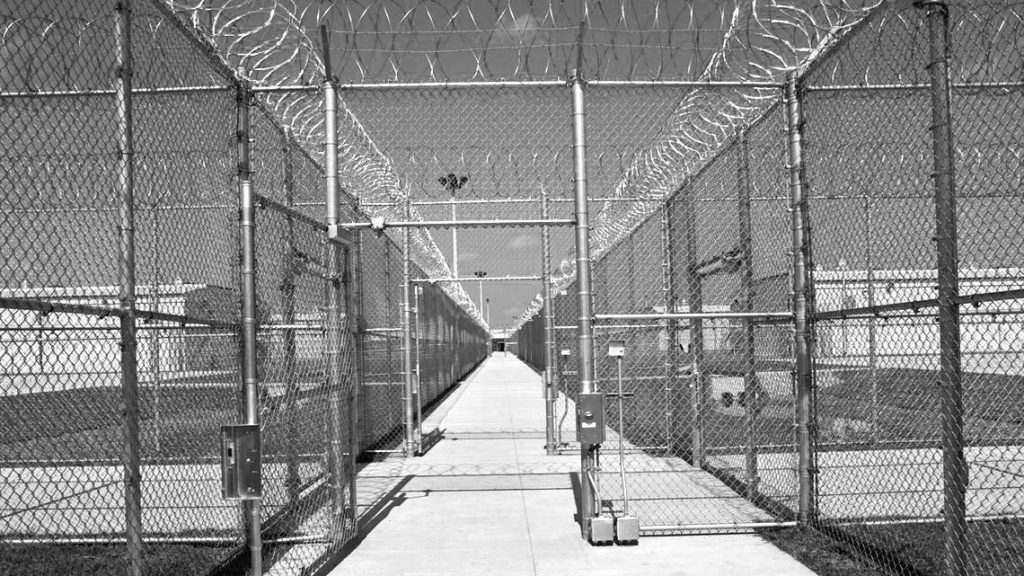Couldn’t care less about “criminal scum”? Then how about one of your heroes – of the frontline healthcare variety?

Among the key findings in a September 2020 report from The Council on Criminal Justice is that COVID-19 infection rates for inmates are four times higher than for the general public. Mortality rates are double. As of last summer, prisons in America accounted for 19 of the top 20 clusters of confirmed Coronavirus cases in the United States.
For real time California numbers, check out the Los Angeles Times’ Coronavirus tracker, currently providing updates of cumulative cases, new cases, and deaths by day.
As one who envisions the redirection of adult offenders rather than the mere recycling of them, I urge you to absorb the statistics, detention hotspots, and death counts while imagining the heart and hope that is suspended amidst the ongoing disqualification of those in custody.
The world is a place where nothing is guaranteed, clearly. But since prison is a smaller, simpler microcosm of society, the loss of goal-oriented trajectories, guidance, and rewards in custody is intensified. For many prisoners and detainees with hampered coping skills and emotional and self-management challenges, there are little or no real diversions as exist elsewhere. Coronavirus kills these aspirational programs even quicker than people as infection safeguards are enacted.
Adding insult to injury is what I call bonus justice, by which the incarcerated are treated as eligible for additional hardship and dismay just because, “You’re here, aren’t you?”
But maybe you see the incarcerated as “criminal scum,” and these things don’t offend your humanity. Fine. How ’bout healthcare workers? You like frontline heroes? Think they’re worth something? Then let’s talk about a prison nurse, one who’s been a friend of mine for years.
This particular nurse earned her credentials with the tenacity and dedication of an astronaut in training. I remember her long hours and that pain-in-the-ass car in which her commute was endured. I was surprised when she announced just over a year ago that she’d accepted a nursing position in a men’s prison, and I admire her for putting need above judgment.
At present, my friend is facing the risk of COVID-19 transmission every single day, and she does so in an atmosphere of fiercely elevated environmental, personal, and psychological vigilance. The emotional and cognitive burden she carries would simply snap many of the rest of us — and that’s without Coronavirus-related fears. Prison is a minefield of rules to remember, and protocols are substituted as abruptly as security requires. Sure, my friend can leave each night, but she’s no less subjected to the righteousness of an amped-up military chain-of-command than are the badges and bad guys. How “at home” could she be with barbed wire, gate buzzers and barking men in her head?
Additionally, as citizens, we use our values and principles to judge each other, with courtesy and manners acting as referees. On the prison yard, philosophies and integrity just square off. In the aftermath, it’s up to whoever’s left standing to pester someone behind a fortified walk-up window for a band-aid. Meanwhile the dread and the aggressive energy of gang ideation never lets up. The cartoonish yet unfunny macho posturing is woven into her work-language, as are minute-to-minute suspicions and charity-killing levels of bureaucracy.
On an average day, this is just some of what my nurse friend has to shake off during her (long) drives home. Now she has the danger of bringing COVID home with her, too. How many of these tensions have morphed, I wonder, into corrosive strains of their own by the time she pulls into the driveway?
There have been 139 reported Coronavirus deaths among prison staff, but since testing information is sporadic and not all states release info on prison employees tested for COVID-19 – these critical frontline workers are forced to speculate, trade rumors, and hope they’re being given the straight story. In that way, at least, they’re just like inmates they serve.
“The nurses are so behind because there are soo many medical emergencies,”
UPDATE:
Los Angeles Times front page – January 13th, 2021:
“The nurses are so behind because there are soo many medical emergencies…”
.
